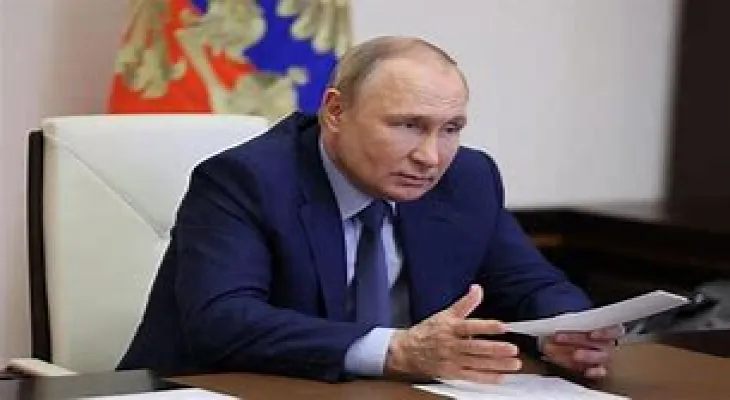Search here
Newspaper
Search here

Arab Canada News
News

Published: September 30, 2022
Russian President Vladimir Putin accused the West on Friday of sabotaging the gas pipelines that Russia built under the Baltic Sea to Germany, a charge strongly denied by the United States and its allies. The Nordic countries said that the underwater explosions that destroyed the pipelines this week and caused massive methane leaks involved several hundred pounds of explosives.
Putin's claim came ahead of an emergency meeting on Friday at the United Nations Security Council in New York regarding attacks on the Nord Stream 1 and 2 pipelines, while Norwegian researchers published a map predicting a massive column of methane gas released from the damaged pipelines would spread over vast areas of the Northern region.
Speaking on Friday in Moscow at a ceremony to annex four regions of Ukraine to Russia, Putin alleged that the "Anglo-Saxons" in the West had turned from imposing sanctions on Russia to "terrorist attacks," leading to the sabotage of the Nord Stream 1 and 2 pipelines in what he described as an attempt "to destroy European energy infrastructure."
He added that "the beneficiaries did it" without naming a specific country. Moscow says it wants a comprehensive international investigation to assess the damage to the pipelines transporting Russian natural gas to Europe.
European countries, which have been suffering from rising energy prices due to the Russian invasion of Ukraine, noted that Russia, not Europe, is the one benefiting from the chaos in energy markets and rising energy costs.
The Kremlin denied involvement, calling suspicions that it sabotaged the pipelines "stupid and predictable."
Analysts found this hard to believe, saying that gas-producing Russia would seemingly profit more by raising market prices through such a strike and punishing Europe, by creating fear and uncertainty, in response to its turn to other gas suppliers due to the Kremlin’s invasion of Ukraine.
Because it is difficult to detect underwater sabotage and easier to deny than attacks that can be easily seen on land and in the air, the explosions also seemed suited to Russian military "hybrid warfare" rules. This is the use of a combination of means — military, non-military, and trickery — to destabilize, divide, and pressure opponents.
Comments